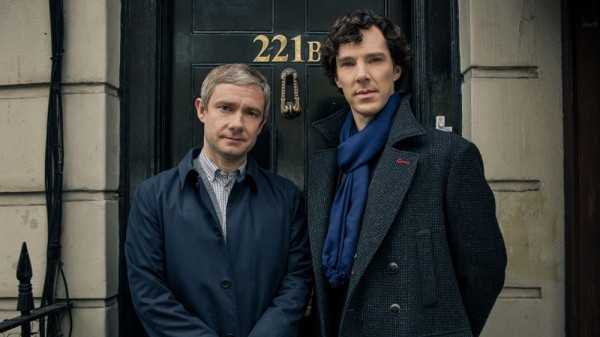So, is Sherlock really a fantasy rather than a crime drama?
“Eh?” I hear you ask.
But I haven’t gone mad, I’m not on a trip right now, and last time I checked my walls were still vertical.
I’m deadly serious: there’s a legitimate case (ho ho) that we should talk about Sherlock as fantasy rather than as outright procedural or crime drama. Not of the swords-and-sorcery type – no Dementors or White Walkers in sight here – but nonetheless it contains key ingredients of the fantastical, which elevates it above more pedestrian crime thrillers.
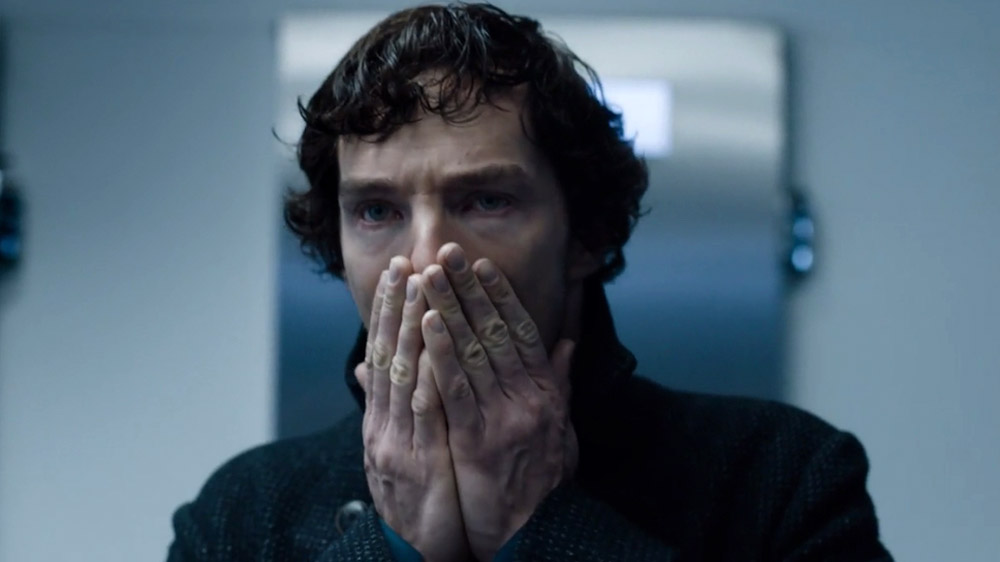
One of the successes of Sherlock from the beginning has been that it clearly takes place in a much more heightened reality than our own.
This has become more obvious as the show has developed: not only are we following the adventures of a super-powered consulting detective and his army-doctor-from-Afghanistan sidekick, but said army doctor was married to one of the most formidable assassins in the world, the consulting detective’s brother more or less runs the British government, and as of last week’s episode ‘The Lying Detective’, Sherlock’s secret sister seems, like his arch-enemy Moriarty, to be some kind of powerful supervillain.
Let’s just say this isn’t a show about ordinary people solving or committing ordinary crimes – and the real world this is not.
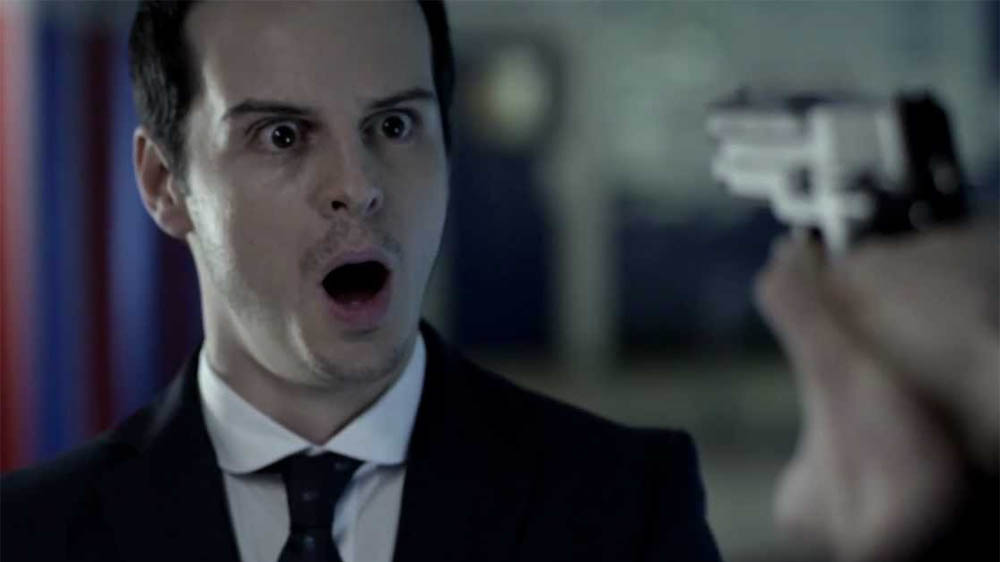
More important, though, are the ways in which Sherlock is written and filmed in a deliberately stylised, non-naturalistic way which emphasises how heightened and unreal the show’s reality is.
Some of the most inventive directors in television – luminaries of the likes of Paul McGuigan, Rachel Talalay and Nick Hurran – have brought their skill and ingenuity to the table to help craft Sherlock’s unique visual style.
These innovations go beyond fun scene transitions (like Watson referencing Mycroft’s “bloody stupid power complex” shortly before the camera shows us the Battersea Power Complex in ‘A Scandal in Belgravia’), though those are part of it. The greatest directorial flourishes allow us, the viewers, into Sherlock’s remarkable mind – a literal visual representation of how his thought processes go from A to Z, taking in everything inbetween.
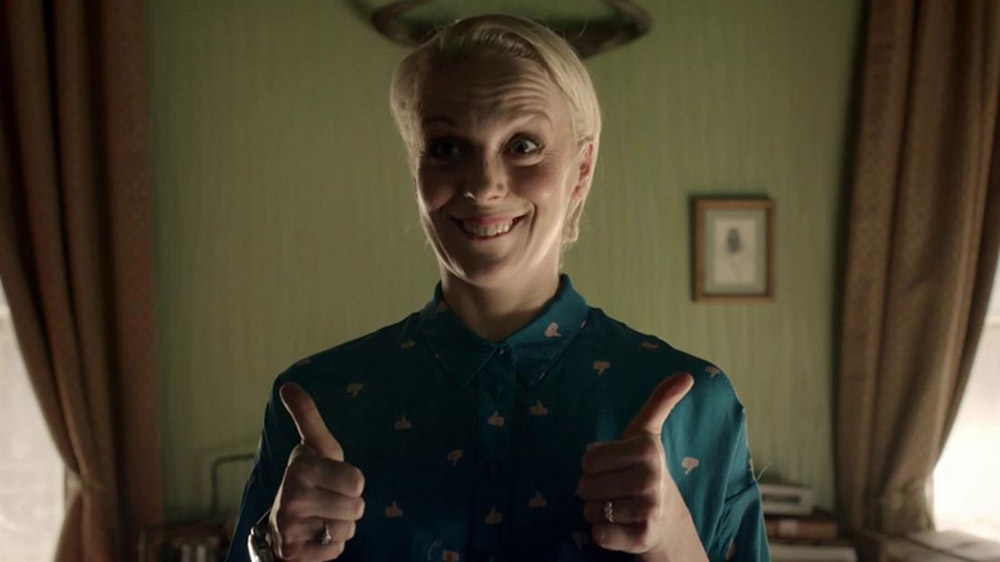
In the show’s first season, this mostly occurs in the form of visual symbols, words or phrases projected onto the screen, or superimposed over the ‘real’ background, as we see the world through Sherlock’s eyes – seeing the information he sees, but not the process of the deduction itself.
The second season developed this further in the introduction in ‘The Hounds of Baskerville’ of a ‘mind palace’, an Ancient Greek memory technique, which allowed viewers to see exactly how Sherlock’s thought patterns worked.
Third season stories like ‘His Last Vow’ went one step further in using Sherlock’s drug habits to make his world much more dream-like, in which we don’t just see the exterior deductions of his brain but seem in some way to be inside it, with him, talking to people who are either dead or who can’t possibly be there.
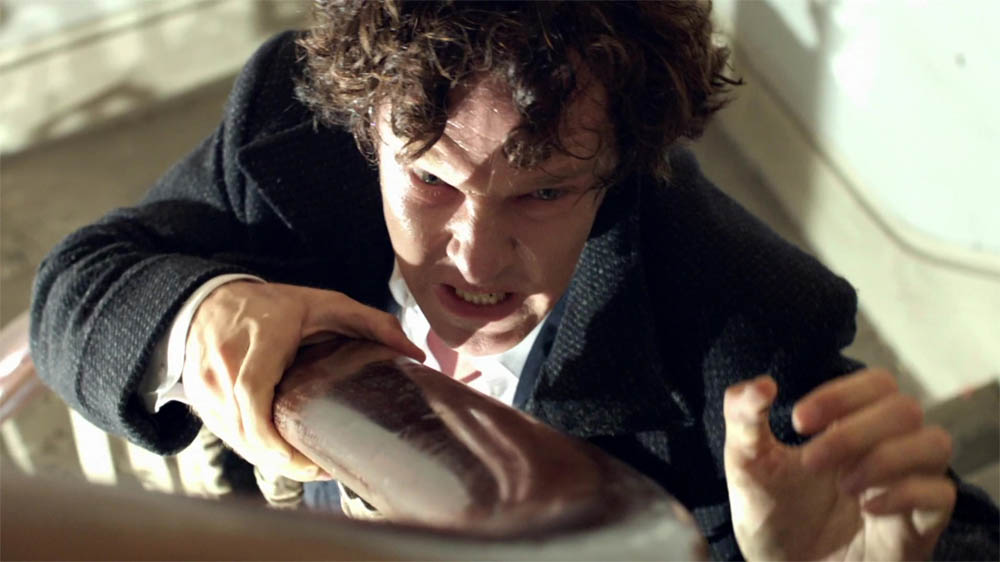
Lengthy scenes, like Sherlock being shot by Mary and falling to the ground, only take a few seconds in real time. The same proved true in ‘The Lying Detective’, where Sherlock mapped out interior scenes he was never present for on a London street, or Nick Hurran used impossible shots such as Sherlock scaling the walls of his flat, gazing down from an Embankment railing into an abyss, or the 221B wallpaper unfolding behind our hero like canvas.
All of these mean that the show, to some extent, takes place inside its main character’s head.
The ultimate example of this, though, is the side-step Victorian special, ‘The Abominable Bride’. Though 90 minutes long, it only takes a few minutes in ‘real-time’, and is set entirely in a detailed Victorian world envisaged inside Sherlock’s mind. It’s here that we reach my last point: the show’s use of myth, and specifically the myth of Sherlock Holmes.
‘The Abominable Bride’ is as much about the relationship between the 1890s and the present day, how the world has changed, as it is the specifics of the Emilia Ricoletti case. The story’s final segment possibly suggests that the modern-day Sherlock is only a dreamt-up fiction of the Victorian Sherlock, or that the two overlap in some way, or that they are more or less interchangeable.
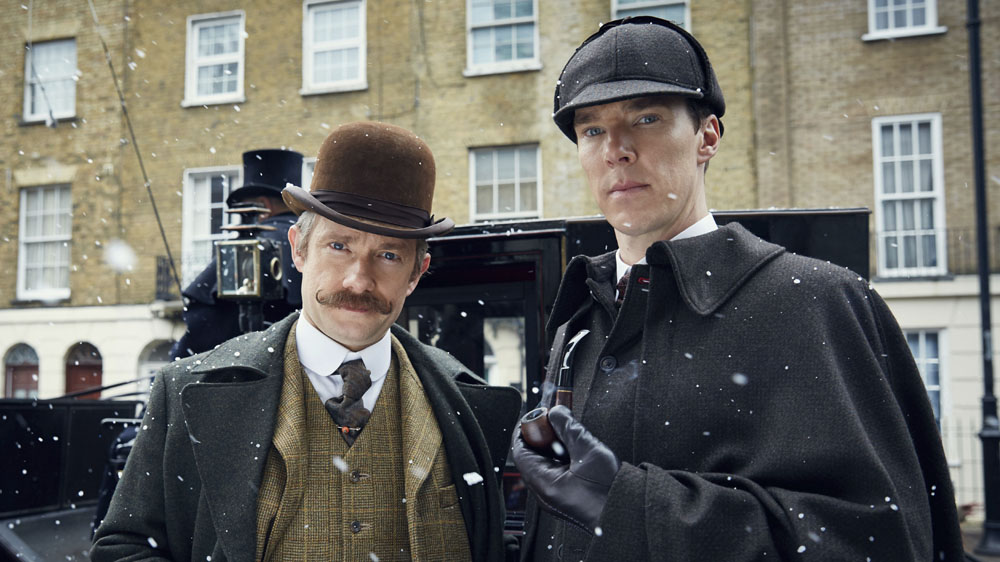
This is a show deeply interested in the textual mythos of its past, not just 21st century crimes. Confusingly hallucinogenic trips help blur the line between past and present, real and unreal, meaning that when – in a story like ‘The Lying Detective’ – we see Sherlock “producing” a window out of thin air in the street, Hurran gives us both a shot with the mental projection of the window and a shot of Sherlock gesturing at nothing, just as Benedict Cumberbatch the actor would gesture at nothing before the CGI is added in later. The show is constantly aware of its own status as unreal fiction.
Crime drama or fantasy?
There’s no doubt it has key elements of both. You know Sherlock’s methods: apply them!
Pre-order Season 4 on DVD on Amazon.
Pre-order Season 4 on Blu-ray on Amazon.
Buy the complete Season 1-3 box set on Amazon.
Do you think Sherlock is really a fantasy rather than a crime drama? Let us know below…

